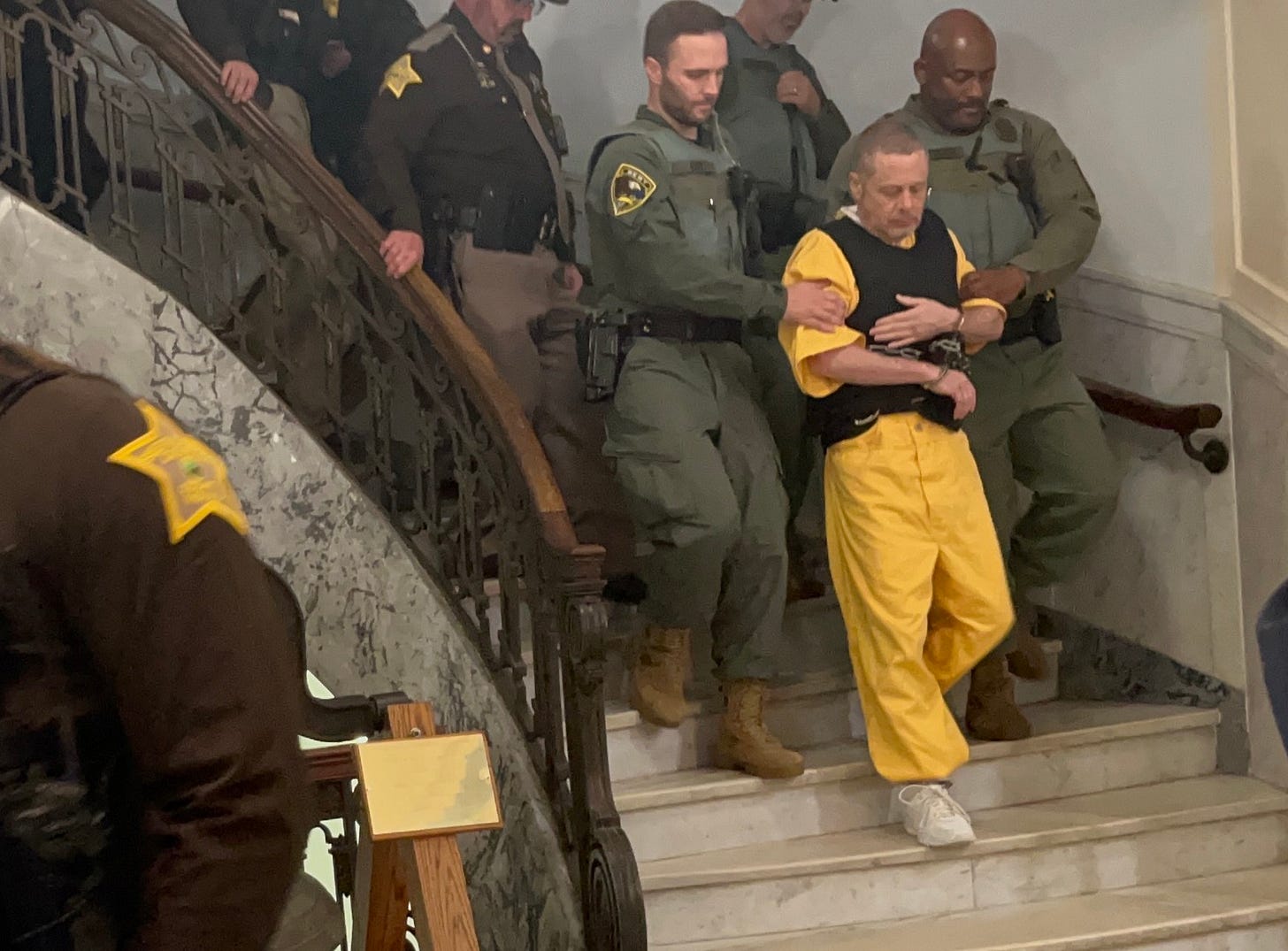Judge: Confessions admissible in Delphi murder trial
Defense team had argued that Richard Allen’s self-incriminating statements were coerced. Judge rules they were offered voluntarily in 2017 murders of Abby Williams and Libby German

Confessions Richard Allen offered to his wife, his prison psychologist, and a warden, inmates and guards at the state prison where he was being held are fair game in his upcoming trial in the 2017 murders of Delphi eighth-graders Abby Williams and Libby German, a judge ruled Thursday afternoon.
In court documents and during a full day of testimony on July 31, Allen’s attorneys argued that any self-incriminating statements – more than 60, an Indiana State Police detective testified that day – came from an accused man whose physical and mental state had been broken by his pre-trial conditions in what amounted to solitary confinement in one of the worst units in the Westville Correctional Facility, a state prison.
Attorneys argued Allen, a former CVS clerk arrested and charged with murder in October 2022, wasn’t well or in his right mind, the confessions ultimately due to a safekeeping order that put him in the state facility instead of a county cell, under 24/7 watch in what they called “a prison inside a prison” at Westville. They argued that Allen’s treatment was equivalent of state coercion.
Judge Fran Gull, an Allen County judge assigned to the case in Carroll Circuit Court, ruled Thursday that attorneys Brad Rozzi and Andrew Baldwin hadn’t made the case that Allen’s admissions were anything but voluntary.
“The statements given to the defendant's family members were voluntary, not coerced by any state action, and were not made under threats of violence or improper influence,” Gull wrote in her order. “Although the defendant is clearly in custody, he initiated the communication with his family and was not subject to custodial interrogation when he spoke to this family.”
Gull continued: “The Court is not persuaded that the detention caused the defendant to make incriminating statements. While the defendant does suffer from major depressive disorder and anxiety, those are not serious mental illnesses that prevent the defendant from making voluntary statements.”
Gull also ruled that all statements Allen offered to Dr. Monica Wala, a psychologist who worked with him at Westville, were admissible in court, too. The judge said the statements weren’t privileged because of an exception in the law for “trials for homicide when the disclosure relates directly to the fact or immediate circumstances of said homicide.”
She denied Allen’s motion to suppress the statements.
The ruling leaves one more key motion in play from three days of hearings in late-July and early-August.



